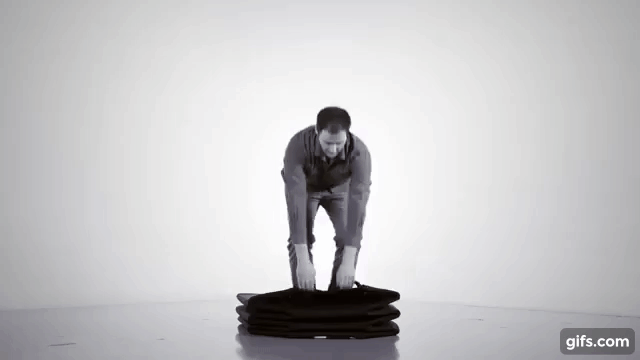Cuckoo
“Cuckoo” gets more confusing the more it explains itself. The further writer-director Tilman Singer goes in articulating the strange goings-on that drive this stylish, unsettling thriller, the less compelling it becomes. Trying to comprehend the hows and whys of this twisted mystery creates a distraction from which the film never recovers. Either we needed to know more, or we needed to know less. Ambiguity actually would have been preferable; Singer creates such a foreboding mood, it would have been enough to hold us in its spell. Instead, we go from “Whoa” to “Wait, what?” Still, deeply committed performances from Hunter Schafer and Dan Stevens keep us hanging on, at least for a while. Both actors are doing extremely different things here, and that friction creates both humor and tension from the get-go. As he has in films as disparate as “The Guest,” “Abigail,” and “Eurovision Song Contest: The Story of Fire Saga,” Stevens uses his gorgeous looks to sinister effect. (And as he did in “I’m Your Man,” he speaks perfect German.) There’s a slickness about him, a piercing quality to his eyes that makes him untrustworthy yet fascinating. Schafer grabs us in a totally different way: She’s our straightforward conduit, the only one who recognizes that something is seriously wrong within the film’s idyllic setting and is willing to call it out. But, reminiscent of Florence Pugh’s struggle in “Midsommar,” no one will listen to her in this beautiful and dangerous foreign land. Schafer stars as Gretchen, a 17-year-old American who’s recently lost her mother. In a fog of grief, she’s forced to move with her father (Marton Csokas), his new wife (Jessica Henwick), and their young, mute daughter (Mila Lieu) to a resort in the Bavarian Alps. Working with cinematographer Paul Faltz, Singer frames this breathtaking place as a brutalist prison, shooting from the bottom of the mountains upward to signify how trapped Gretchen feels. Stevens’ smarmy Herr König runs the place and has invited the family to stay a while as he works with Gretchen’s father on his next development. From the start, though, severe shadows and chilly reflections indicate to us that this is anything but a relaxing retreat. And Herr König’s demeanor, which morphs from merely passive-aggressive to outright controlling, makes her even more desperate to flee. The exaggerated way he pronounces her name, leaning hard into the R in Gretchen, is amusing but also symbolic of his arrogant cruelty. But unnatural forces also seem to be holding her in place. One particularly gripping sequence finds Gretchen riding her bike home at night after reluctantly working a shift at the hotel’s front desk. With expert pacing, Singer and editors Terel Gibson and Philipp Thomas reveal just enough beneath the streetlights to terrify us. Similarly, there’s a hypnotic repetition of sequences that occurs over and over again, each time building to a startling crescendo. A seismic shimmer and a high-pitched shriek accompany this structure; while this sound design choice is disturbing at first, it eventually grows annoying, especially once we discover its source. And yet, because she is grieving, we don’t know what’s real and what’s the manifestation of her trauma. The amorphous quality of her torment is sorrowful and unnerving, and the messages she leaves on her deceased mother’s answering machine never provide the catharsis she seeks. Schafer has such an accessibility about her that we feel every emotion, and as Gretchen taps into her fierceness, we root for her to use her physicality to triumph. She also has such a deadpan way of addressing the increasing absurdity around her that she brings some welcome comic relief within the tension. But then we find out what’s really going on – or at least, we think we do. Somewhere in here, there might be a dark fairy tale about the importance of letting women do what they want with their bodies, but that message gets muddled within the chaotic narrative. Whether or not you truly understand it, or it’s even capable of being understood, “Cuckoo” will likely drive you mad.


“Cuckoo” gets more confusing the more it explains itself. The further writer-director Tilman Singer goes in articulating the strange goings-on that drive this stylish, unsettling thriller, the less compelling it becomes.
Trying to comprehend the hows and whys of this twisted mystery creates a distraction from which the film never recovers. Either we needed to know more, or we needed to know less. Ambiguity actually would have been preferable; Singer creates such a foreboding mood, it would have been enough to hold us in its spell. Instead, we go from “Whoa” to “Wait, what?”
Still, deeply committed performances from Hunter Schafer and Dan Stevens keep us hanging on, at least for a while. Both actors are doing extremely different things here, and that friction creates both humor and tension from the get-go. As he has in films as disparate as “The Guest,” “Abigail,” and “Eurovision Song Contest: The Story of Fire Saga,” Stevens uses his gorgeous looks to sinister effect. (And as he did in “I’m Your Man,” he speaks perfect German.) There’s a slickness about him, a piercing quality to his eyes that makes him untrustworthy yet fascinating. Schafer grabs us in a totally different way: She’s our straightforward conduit, the only one who recognizes that something is seriously wrong within the film’s idyllic setting and is willing to call it out. But, reminiscent of Florence Pugh’s struggle in “Midsommar,” no one will listen to her in this beautiful and dangerous foreign land.
Schafer stars as Gretchen, a 17-year-old American who’s recently lost her mother. In a fog of grief, she’s forced to move with her father (Marton Csokas), his new wife (Jessica Henwick), and their young, mute daughter (Mila Lieu) to a resort in the Bavarian Alps. Working with cinematographer Paul Faltz, Singer frames this breathtaking place as a brutalist prison, shooting from the bottom of the mountains upward to signify how trapped Gretchen feels.
Stevens’ smarmy Herr König runs the place and has invited the family to stay a while as he works with Gretchen’s father on his next development. From the start, though, severe shadows and chilly reflections indicate to us that this is anything but a relaxing retreat. And Herr König’s demeanor, which morphs from merely passive-aggressive to outright controlling, makes her even more desperate to flee. The exaggerated way he pronounces her name, leaning hard into the R in Gretchen, is amusing but also symbolic of his arrogant cruelty.
But unnatural forces also seem to be holding her in place. One particularly gripping sequence finds Gretchen riding her bike home at night after reluctantly working a shift at the hotel’s front desk. With expert pacing, Singer and editors Terel Gibson and Philipp Thomas reveal just enough beneath the streetlights to terrify us. Similarly, there’s a hypnotic repetition of sequences that occurs over and over again, each time building to a startling crescendo. A seismic shimmer and a high-pitched shriek accompany this structure; while this sound design choice is disturbing at first, it eventually grows annoying, especially once we discover its source.
And yet, because she is grieving, we don’t know what’s real and what’s the manifestation of her trauma. The amorphous quality of her torment is sorrowful and unnerving, and the messages she leaves on her deceased mother’s answering machine never provide the catharsis she seeks. Schafer has such an accessibility about her that we feel every emotion, and as Gretchen taps into her fierceness, we root for her to use her physicality to triumph. She also has such a deadpan way of addressing the increasing absurdity around her that she brings some welcome comic relief within the tension.
But then we find out what’s really going on – or at least, we think we do. Somewhere in here, there might be a dark fairy tale about the importance of letting women do what they want with their bodies, but that message gets muddled within the chaotic narrative. Whether or not you truly understand it, or it’s even capable of being understood, “Cuckoo” will likely drive you mad.




















